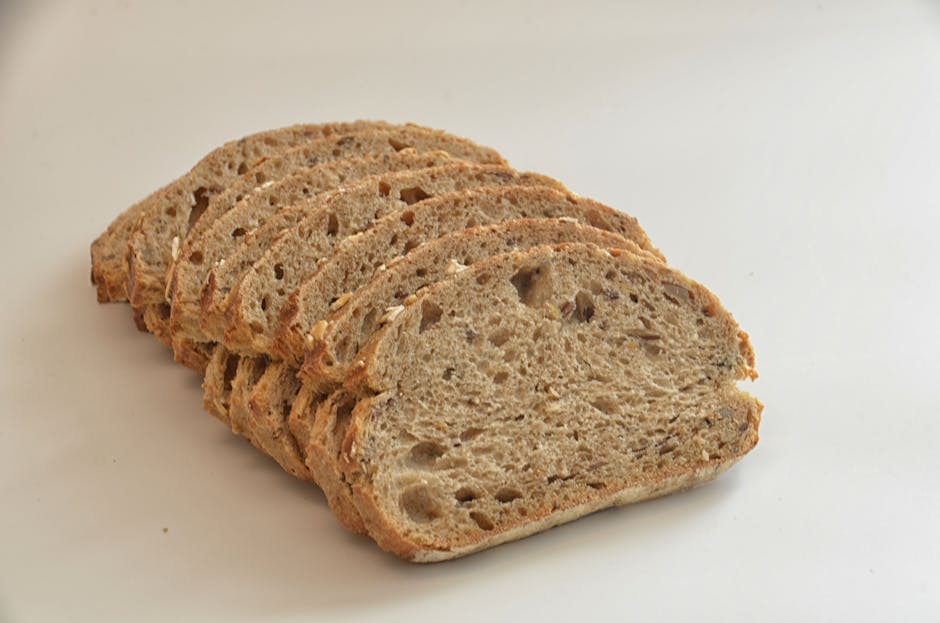Focus Keyword: Smart Nutrition Science
Welcome to Fit Food Wisdom, your trusted source for evidence-based guidance on optimal health and fitness. In this comprehensive guide, we explore smart nutrition science—the powerful intersection of scientific research and education that empowers individuals to make healthier choices. Understanding the science behind nutrition is the first step toward lifelong wellness, and this article will equip you with the knowledge and tools to transform your eating habits for good.
The Foundation of Smart Nutrition Science: What Is It and Why Does It Matter?

Photo by Jan Van Bizar on Pexels
Nutrition is more than just counting calories or following the latest diet trend. Smart nutrition science is about understanding how the foods you eat affect your body, your mind, and your long-term health. This approach is grounded in rigorous scientific research and emphasizes the importance of evidence-based choices over fads or misinformation.
At its core, smart nutrition science recognizes the complexity of human biology. Every nutrient—from vitamins and minerals to proteins, fats, and carbohydrates—plays a unique role in keeping our bodies functioning optimally. By educating ourselves about these roles, we can make more informed decisions that align with our health and fitness goals.
Why does this matter? Because knowledge is power. When you understand the science behind nutrition, you are less likely to fall for myths and more likely to adopt habits that lead to lasting wellness. This foundation sets the stage for everything else in your health journey.
How Nutrition Education Shapes Lifelong Healthy Habits

Photo by Artem Podrez on Pexels
Education is the bridge between information and action. While there is an abundance of nutritional advice available today, not all of it is accurate or helpful. Nutrition education provides the tools to distinguish evidence-based guidance from misinformation, enabling you to make choices that truly benefit your health.
Effective nutrition education goes beyond memorizing facts. It fosters critical thinking, teaching you to ask questions like: Where does this information come from? Is it supported by scientific research? How does it apply to my unique needs?
By building a strong foundation of knowledge, you develop the confidence to navigate the complexities of food labels, portion sizes, and nutrient requirements. Over time, these skills become second nature, helping you establish habits that support your well-being for life.
The Role of Science in Debunking Nutrition Myths

Photo by freestocks.org on Pexels
The world of nutrition is filled with myths and misconceptions. From miracle diets to superfoods, it can be challenging to separate fact from fiction. This is where smart nutrition science shines. Through rigorous research and peer-reviewed studies, science helps us debunk common myths and focus on what truly matters for health.
For example, the idea that all fats are bad has been thoroughly disproven. Science now shows that healthy fats—such as those found in avocados, nuts, and olive oil—are essential for brain function, hormone production, and heart health. Similarly, the notion that carbohydrates are inherently unhealthy ignores the importance of complex carbs like whole grains, fruits, and vegetables.
By relying on scientific evidence, you can make choices that are grounded in reality, not hype. This empowers you to avoid unnecessary restrictions and embrace a balanced, sustainable approach to nutrition.
Personalized Nutrition: How Science and Technology Are Changing the Game

One of the most exciting developments in smart nutrition science is the rise of personalized nutrition. Advances in genetics, microbiome research, and data analytics are enabling more tailored recommendations than ever before. No two bodies are exactly alike, and personalized nutrition recognizes this by considering individual differences in metabolism, genetics, and lifestyle.
Technology is also playing a pivotal role. Wearable devices, mobile apps, and online platforms can track your eating habits, activity levels, and even sleep patterns, providing real-time feedback and customized suggestions. This data-driven approach makes it easier to set achievable goals and monitor progress.
Personalized nutrition is not about perfection—it’s about making incremental changes that fit your unique needs and preferences. By leveraging science and technology, you can create a nutrition plan that works for you, not against you.
The Connection Between Nutrition, Mental Health, and Cognitive Performance

Photo by MART PRODUCTION on Pexels
Nutrition doesn’t just impact your physical health—it also plays a crucial role in mental well-being and cognitive performance. Emerging research shows that what you eat can influence mood, memory, focus, and even your risk of mental health disorders.
Key nutrients like omega-3 fatty acids, B vitamins, and antioxidants are essential for brain health. Diets rich in whole foods, fruits, vegetables, and healthy fats have been linked to lower rates of depression and anxiety. On the other hand, diets high in processed foods, sugar, and unhealthy fats may increase the risk of cognitive decline and mood disorders.
Understanding the science behind these connections empowers you to make food choices that support both your body and mind. By prioritizing nutrient-dense foods, you can boost your energy, sharpen your focus, and enhance your overall quality of life.
Building a Balanced Plate: Practical Strategies for Smart Nutrition

Photo by ROMAN ODINTSOV on Pexels
Applying smart nutrition science to your daily life doesn’t have to be complicated. The key is to focus on balance, variety, and moderation. Here are some practical strategies to help you build a balanced plate:
- Fill half your plate with colorful fruits and vegetables.
- Choose whole grains over refined grains for sustained energy.
- Include a source of lean protein at every meal.
- Incorporate healthy fats, such as nuts, seeds, and olive oil.
- Stay hydrated with water and limit sugary beverages.
- Practice mindful eating by paying attention to hunger and fullness cues.
Remember, small changes add up over time. By making one or two adjustments each week, you can gradually build healthier habits that last a lifetime.
Empowering the Next Generation: The Importance of Nutrition Education in Schools

Photo by Photo By: Kaboompics.com on Pexels
Investing in nutrition education from an early age is one of the most effective ways to promote lifelong health. Schools play a critical role in shaping attitudes and behaviors around food, providing students with the knowledge and skills they need to make informed choices.
Comprehensive nutrition education programs teach students about the importance of balanced diets, the dangers of excess sugar and processed foods, and the benefits of physical activity. These programs also encourage critical thinking, helping students evaluate food marketing and navigate peer pressure.
By empowering the next generation with smart nutrition science, we can help reduce rates of obesity, diabetes, and other chronic diseases. The ripple effects extend beyond individual health, benefiting families, communities, and society as a whole.
Staying Informed: How to Find Reliable Nutrition Science Resources

Photo by Cats Coming on Pexels
In the digital age, access to nutrition information is easier than ever—but so is the spread of misinformation. To make smart choices, it’s essential to rely on credible sources. Look for information from registered dietitians, reputable health organizations, and peer-reviewed scientific journals.
Be wary of sensational headlines, miracle cures, and advice that sounds too good to be true. Instead, focus on evidence-based recommendations that are supported by research. Continuing your nutrition education is a lifelong journey, and staying informed will help you adapt to new discoveries and trends as they emerge.
Conclusion: Your Journey Toward Smart Nutrition Starts Here

Photo by Cedric Fauntleroy on Pexels
Smart nutrition science is more than a set of rules—it’s a mindset rooted in curiosity, critical thinking, and lifelong learning. By embracing evidence-based strategies and prioritizing education, you can make empowered choices that support your health, fitness, and overall well-being.
At Fit Food Wisdom, we believe that everyone deserves access to reliable, practical nutrition guidance. Whether you’re just starting your journey or looking to deepen your understanding, remember that every step you take brings you closer to your goals. Here’s to your health—and the wisdom to make it last.
Sources
- https://marzanoresearch.com/hot-topics-in-education-2025/
- https://blog.allstemconnections.com/general/top-10-stem-trends-to-follow-in-2025/
- https://www.nsta.org/blog
- https://bloggers.feedspot.com/science_teacher_blogs/

